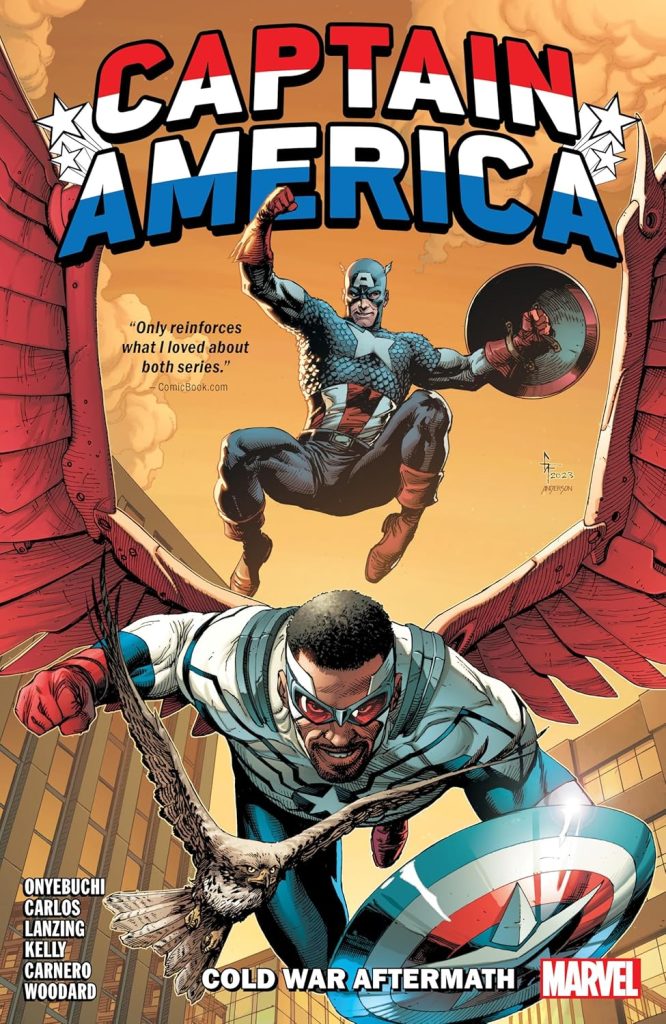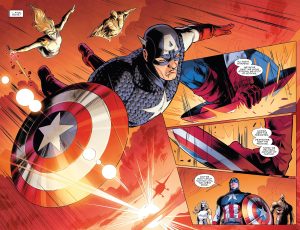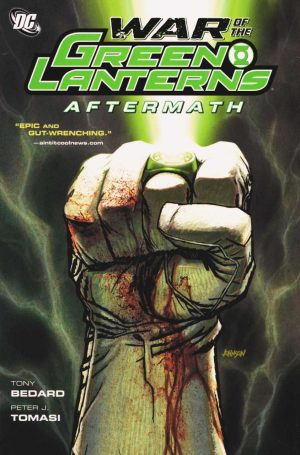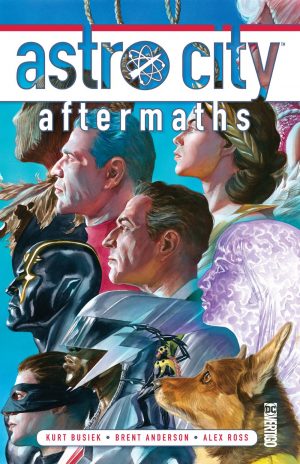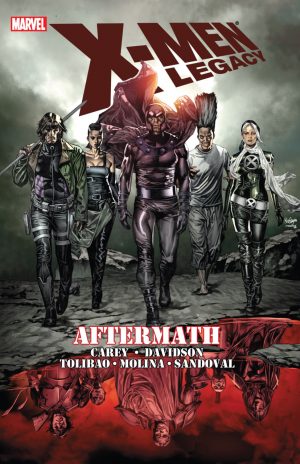Review by Ian Keogh
All too often the end of one superhero story merely starts another, yet Cold War Aftermath’s more reflective title indicates this is a prolonged settling of affairs rather than a continuation. Both Steve Rogers and Sam Wilson have recently been Captain America, and Cold War saw them unite against a threat both had been battling.
Tochi Onyebuchi writes the opening sections dealing with Sam’s uncertainty about what his role now is. Throughout Symbol of Truth Onyebuchi wrote him as a man of certainties, easily directing others in action, yet the doubts aren’t just bolted on for the sake of a story, but evolve naturally from what he’s just been through. Almost bereft of action, yet still holding the interest, perhaps an obvious decision is reached, but the discussions getting there are all worthwhile.
Collin Kelly and Jackson Lanzing address the death of Roger Aubrey, the Destroyer, during their Sentinel of Liberty run. Killing a superhero rarely avoids being a cheap, emotional button pushing option, especially when it’s likely that a year later said hero will be back among the living, yet with their funeral service and eulogies Kelly and Lanzing touch hearts. The only mis-step is artist Carmen Carnero over-dramatising the announcement of a new Destroyer, but otherwise it’s heartfelt and leads into a necessary discussion between Steve and Bucky Barnes. That’s also good, again underlining their different methods and where they set uncrossable lines.
The simultaneous run of all writers on separate projects has been admirable throughout, but their joint finale is briefly postponed by a selection of four page stories by other creators. Most look backwards, settling on a moment from the past that makes a point for the present, and while all are readable the best is from Gail Simone and Daniel Acuña, concerning how Cap, who barely appears, is an inspirational figure to a bunch of young children. Knowingly sentimental, it’s beautifully drawn.
There can be no complaint about the art throughout, which is thoughtful and emotionally strong. The sample is by Carnero, reflecting his greater contribution, but slips are rare and the visual storytelling flows smoothly.
Kelly and Lanzing aren’t quite as smooth in wrapping up their story. The ultimate solution of Cap’s shield being a mechanism to shut down the technology of a powerful covert group has been well foreshadowed, and there’s a final surprise about the relationship enabling that, but it’s one of those stories that works well enough in passing, as long as you don’t start thinking about it. One might have assumed an organisation pulling global strings for so long would have a few more resources at their disposal for a start, although a single spread demolition of Cap’s greatest foes is amusing.
Greater introspection than usual characterises Aftermath, and it’s all the better for that, and ought to please everyone who’s been following the cast over Sentinel of Liberty and Symbol of Truth. J. Michael Straczynski’s version of Captain America is up next.
